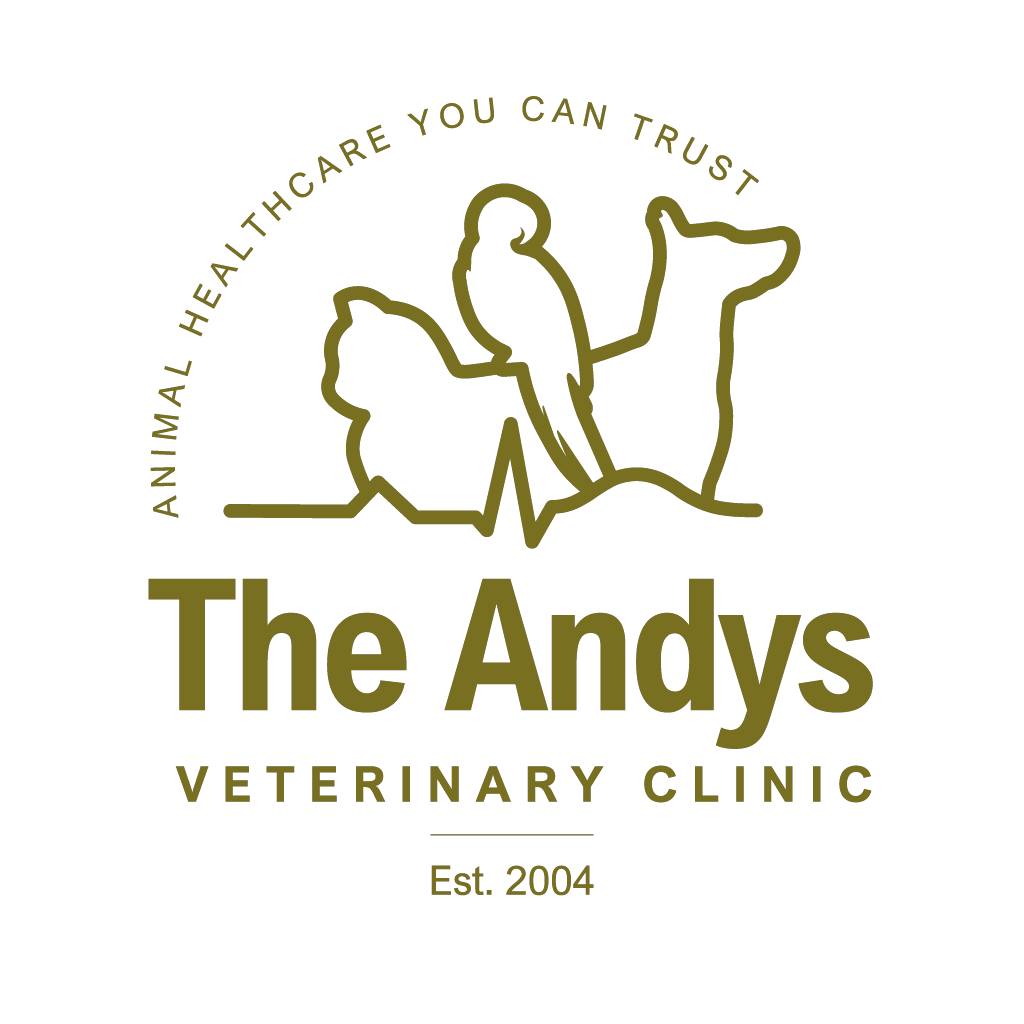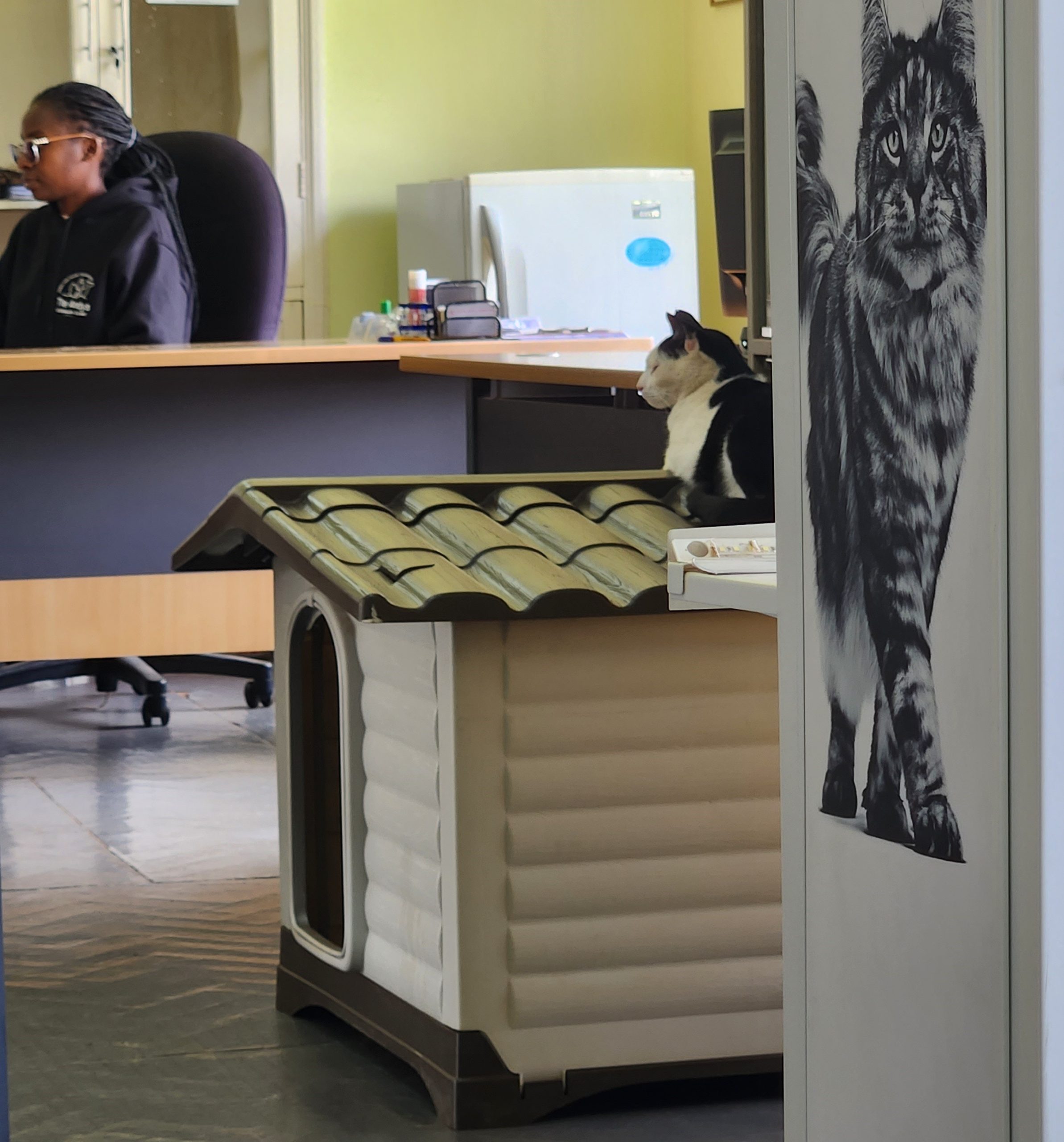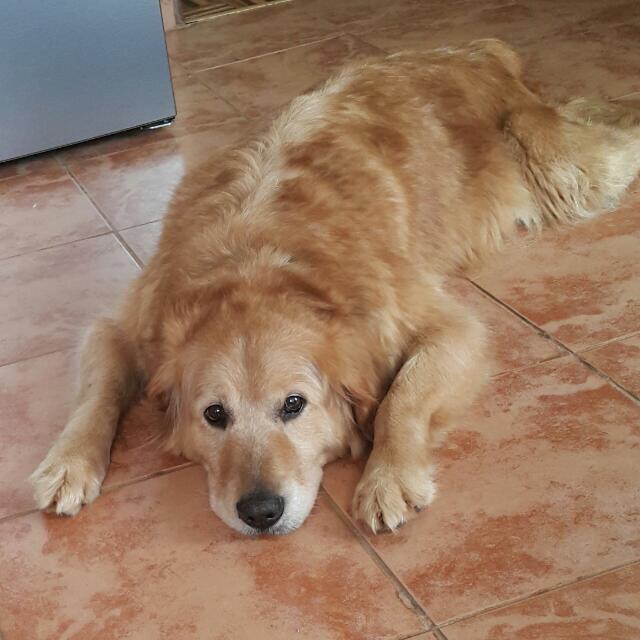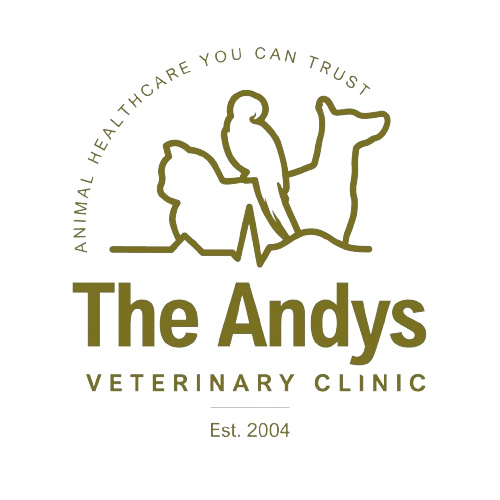FAQs at The Andys Veterinary Hospital
When do dogs and cats get their first vaccination?
Puppies and kittens get their first vaccinations at 6 weeks of age. This will follow with a series of vaccinations until they are 4 months of age. Thereafter, they are given annual boosters for the rest of their lives.
When do they get their first rabies vaccination?
We recommend rabies vaccination at 3 months of age and a booster shot one month after the primary rabies vaccination.
My pet keeps shading a lot, what do l need to do?
This can be likening to your own daily hair loss and shedding is also natural in some pets. There are breeds of dogs and cats that naturally shed more than others. This can be reduced by daily combing or grooming your pet to get rid of the dead hairs and feeding the right diet. However, excessive shedding can be a sign of disease or illness that requires our attention.
Why is my pet keeps dragging or rubbing its rear on the ground?
Your pet may have full or impacted anal glands that need to be expressed. Tape worms also cause irritation of the bowel and this could be a sign that your pet needs to be dewormed. There may be other serious issues like anal furunculosis, foreign body, bite wounds and urinary problems that may need our attention. Please call us the clinic to make an appointment and It will be helpful if you could bring a fecal sample to your appointment for us to check for the presence of worm eggs.
My dog keeps shaking his head and scratching his ears, what could be the problem?
This could be mites, fungal or bacterial infection. Some breeds of dogs like the German shepherd have atopic dermatitis which is an allergic reaction triggered by food, mites and fungal infection. It also could be from aural hematoma which develops as secondary to the infections that have just been mentioned. It is worth investigating the cause of head shaking from the history, skin scraping and allergen test before treatment.
Which days do you perform surgeries?
We perform surgeries on every day of the week except on Sundays. However, emergency surgeries are handled any time of the day and week.
What are the benefits of having my pet spayed or neutered?
Spaying (Ovariohysterectomy) or neutering (Castration) your pets greatly reduces risk of developing some types of cancer like ovarian, uterine, mammary and testicular cancer. Spaying your animals eliminate the chances of your pets developing uterine infection, known as a pyometra, which is normally a life threatening condition. In addition, aggressive behaviours towards other mates will be greatly reduced. Spaying or neutering may also decrease or even eliminate unwanted behaviours such as aggression or running off from the homestead. Spaying or neutering pets is a responsible way of dealing with unwanted litters of puppies or kittens without placing an extra burden on animal shelters.
What should l do when my pet is having surgery the following day?
It is recommended that you provide food until about 10:00 PM the night before surgery. Do not restrict water intake and let your pet have access to water at all times. Your pet will be provided with food and water once they have fully recovered from anaesthesia.
When should I pick my pet up following their surgery?
This will depends on the type of procedure but for routine spay and neuter, We usually allow a patient that is neutered to go home on the same day the surgery is performed, but for any pet that is spayed, it is generally recommended that they spends the night at the clinic. In some circumstances, your pet may stay for much longer period depending on the type of procedure performed and the severity of the animal’s condition.
At what age should my puppy or kitten be spayed or neutered?
We generally recommend waiting until your pet is 6 months of age so that any urinary incontinence issues associated with spaying or neutering are avoided. It is recommended that your pets are spayed before their first cycle as this reduces chances of them having mammary tumours or pyometra.
How do I know when my pet needs a dental check up?
Foul or Bad breath, excessive drooling, inflamed gums, plaque or tartar build-up, and loose teeth are indications that your pets needs a dental check up. We also do dental check up when your pet comes for routine vaccinations. Schedule appointment for dental procedure as this is carried out under general anaesthesia.
When should my dog be on heartworm medication?
Heartworm disease is common at the coastal and the lake regions. It is a specific parasite that is transmitted by a biting mosquito and affects dogs, cats, ferrets and other mammals. It is very easy to prevent but very difficult to treat and is normally a life threatening disease. It is important you provide a history if you are travelling to these heart worm risk areas and we recommend testing your dog for heartworm disease before starting on the preventative.
Do you board animals at your clinic?
We board quite a few animals, but we have limited space from our in patients and it will be ideal to call in advance so that you can book a space for your pet.
Prepared by:
Dr. Anderson Gitari, Bvm, Mvet Surgery
The Andys Veterinary Hospital.




